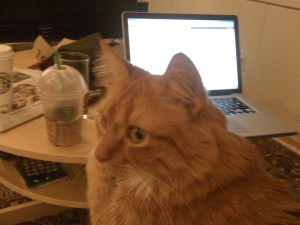Imagery plays a vital role in the success of dystopian, fantasy, and science fiction books. Because these books are usually set in make-believe worlds or alternate worlds different from our present, worlds that live in the mind of the writer, it is essential to the success of these books for the reader to see the visuals the way the writer sees them. The world must find a way to live outside of the writer’s mind.
Visualizing my Imaginary World
When writing imagery, I often will see if I can find visual aids that support the images in my head. I find it easier to richly describe a scene/setting if I have a visual – the visual helps me see the rest of the details that my brain may have overlooked.
Ordering my Visual World
In the past, I bookmarked. A lot. Now I use Pinterest, a relatively new tool that allows you to “pin” images to a virtual pin board. By organizing my boards, I can create a collage of images for a specific WIP, a chapter, even a scene. The great thing about this is that it allows me to easily organize the images. Plus, I can view them all at once, on the same page, allowing the imagery to really flow together, creating a succinct visual of what I’m imagining.
Of course, the one flaw with Pinterest is that it is a superb procrastination tool. So you have to be careful with the amount of time you spend on it.
Do you use Pinterest to help with your writing? How do you use it? What do you think of it as a tool for writers?
I’m only just getting started on Pinterest, but if you want to see how I am using it, check out my writing inspiration board. And stay tuned for my chapter-by-chapters boards which should arrive shortly.





